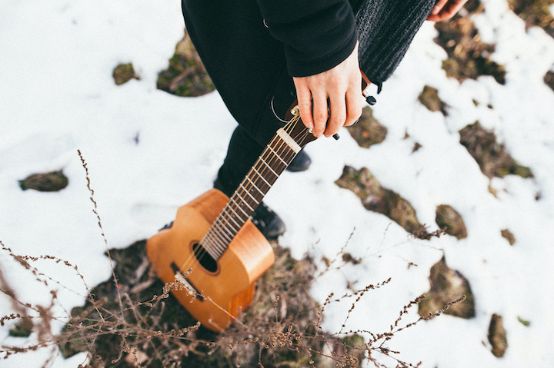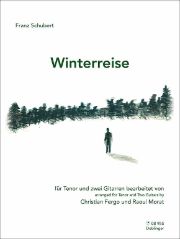Delicately accompanied
Schubert had a great affinity for the guitar, but he did not use it to accompany songs. In this edition of "Winterreise", a guitar duo now stands alongside the tenor.

The name Franz Schubert usually conjures up associations: Lied, piano, string quartet. Schubert's masses, symphonies and numerous stage works only attracted attention, if at all, after his death. In terms of music history, however, his lieder had an enormous influence on the development of the genre of the art song as we know it today and was already present in the public eye during his lifetime.
Although not a single one of his songs with authentic guitar accompaniment has survived, there are enough sources to prove Schubert's affinity for the guitar and to justify guitar arrangements of his piano songs. In the Biedermeier period, musical life did not flourish on large stages, but on a small and private scale, and the tradition of the so-called Schubertiades has been handed down to us since 1821. The Biedermeier's favorite instrument was omnipresent in Schubert's circle of friends and family, and Schubert himself owned a guitar from Staufer's workshop.
Even during his lifetime, there were corresponding versions of the Erlkönig or the Young nun for example (although not by him), and there are even some songs that seek to imitate the guitaristic (or harpistic) gesture and are ideally suited for guitar arrangements. One thinks of The night D534 or Night piece D672.
There is now a wealth of transcribed songs. The present version of the Winter journey is even set for guitar duo by Christian Fergo and Raoul Morat, which certainly comes closer to the richness of sound of a piano accompaniment and yet fully exploits the delicacy and richness of color of the guitar. In my opinion, this is a remarkable edition that enriches and expands the existing guitar repertoire.
One takes the view that an arrangement is always an interpretation at the same time, and so, although fingerings are always an individual decision of the respective guitarist, it was decided to notate some in order to retain the original character of the musical structure and expression of the piano part. The pianos of Schubert's time were much more delicate in their timbre, and we know that Schubert himself strove for an elegant, light touch and little use of pedal. This makes it all the more obvious to use the colorful possibilities of a guitar arrangement to emphasize precisely that intimate side of the piano accompaniment that Schubert may have had in mind.
Franz Schubert: Winterreise, for tenor and two guitars arranged by Christian Fergo and Raoul Morat, D 08955, € 34.95, Doblinger, Vienna








